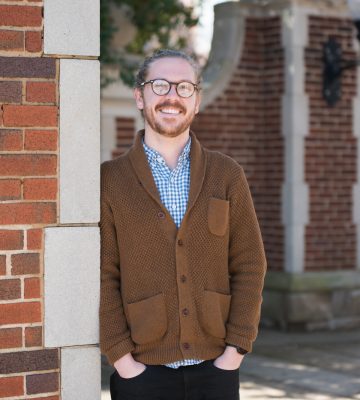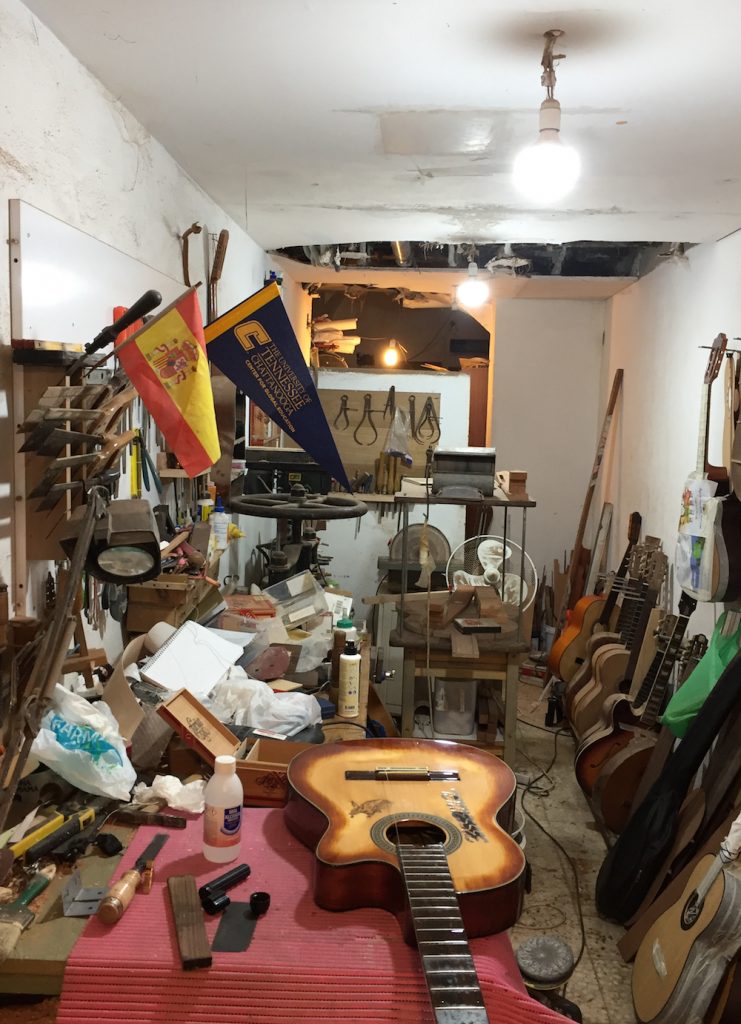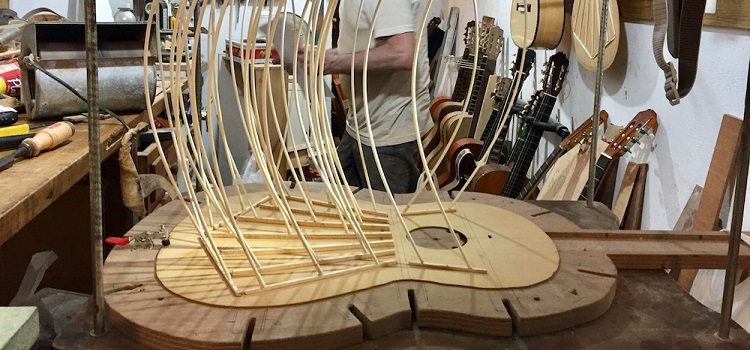
Peter Hagemeyer was studying economics in Spain when he learned how to make guitars.
Peter Hagemeyer went to Spain to learn more about economics; he came home knowing more about building guitars.
Maybe to the point of building one himself.
“No guarantee of it being awesome, but …,” says Hagemeyer, a senior in economics at UTC.
Not that Hagemeyer didn’t return to the U.S. with plenty of new information and a better understanding of economic principles after his UTC-sponsored trip to Cadiz, Spain. For two months in the summer of 2016, he spent five days a week immersed in research, eventually producing a paper on academic spin-offs, companies that start as university-funded research then are launched as commercial entities.
Most weeknights, though, he was in the shop of Fernando Gomez, a Cadiz native who repaired and built acoustic guitars. Although Hagemeyer only spoke a little Spanish and Gomez spoke only a little English, they understood each other enough for Hagemeyer to learn how to bend, glue, sand and scrape wood — some of it far from cheap — to use in guitars.
“He said, ‘I could tell that you were interested, and I could tell that you cared from the very beginning … so I wanted to show you all of these things.’”
And yes, even though Gomez had enough confidence in him to hand over power tools that could easily get out of control, Hagemeyer still had moments of jangly nerves when working on a piece of wood such as cypress or German spruce or mahogany or exotic bloodwood.
“It was like, ‘If I break this guitar in a way that’s unfixable — it’s pretty unlikely — but if I break this, this is a lot of money that I’m just taking away from my friend!” says Hagemeyer, who plays guitar in local band Focus Fox.
Luckily, he never faced that reality.
Gomez’s shop was on the ground floor of the building where Hagemeyer was living in Cadiz, and he’d walk by the shop each day, looking through the open door at a conglomeration of guitars, wood and tools. As students walked by, Gomez “would always say ‘hi,’” Hagemeyer recalls.
He finally entered the shop and struck up a conversation about guitars with Gomez. A couple of days later, Hagemeyer asked a favor, using the owner of the building as a translator.
“I was worried because I didn’t want to be imposing on Fernando at all, but I was just like, ‘I would be really interested to see how you do this and would love to learn some things, but I don’t want to get in the way. If that’s not OK, let me know.”
It was more than OK. Gomez was eager to share what he knew with someone who seemed truly interested in the craft.
“He was really excited about that, ‘Yeah! I would love that! That would be great!’ And so, from that day onward, I would go and work with him from eight at night until 10 at night.”
Along with the knowledge of how to bend wood, use routers to carve it into the right shape and plane off it one slender, slender layer at a time, Hagemeyer also took home some a new outlook on daily life.
“Fernando was very much more philosophical that you might expect first,” Hagemeyer says. “One time, I think I messed up something we were working on and he was like, ‘It’s OK. When I mess up on a guitar, I don’t get mad because, if I got mad, then I would have two problems. I’m mad and my thing is broken. It’s done. I just fix it, and then I have no problems.’
“It was just so funny because I was just like, ‘Yeah, you’re so right! I’ve never thought of it in that way, but you’re right on about that one.’”

Fernando Gomez’s cluttered guitar-making shop in Cadiz, Spain.


